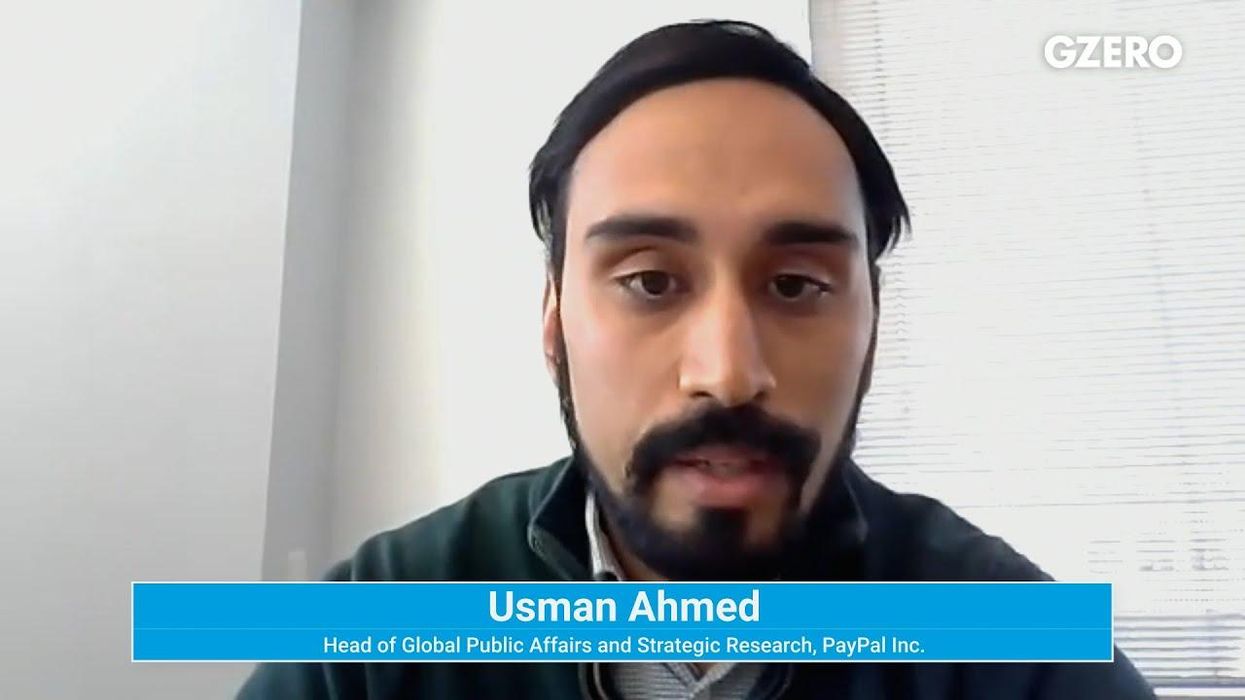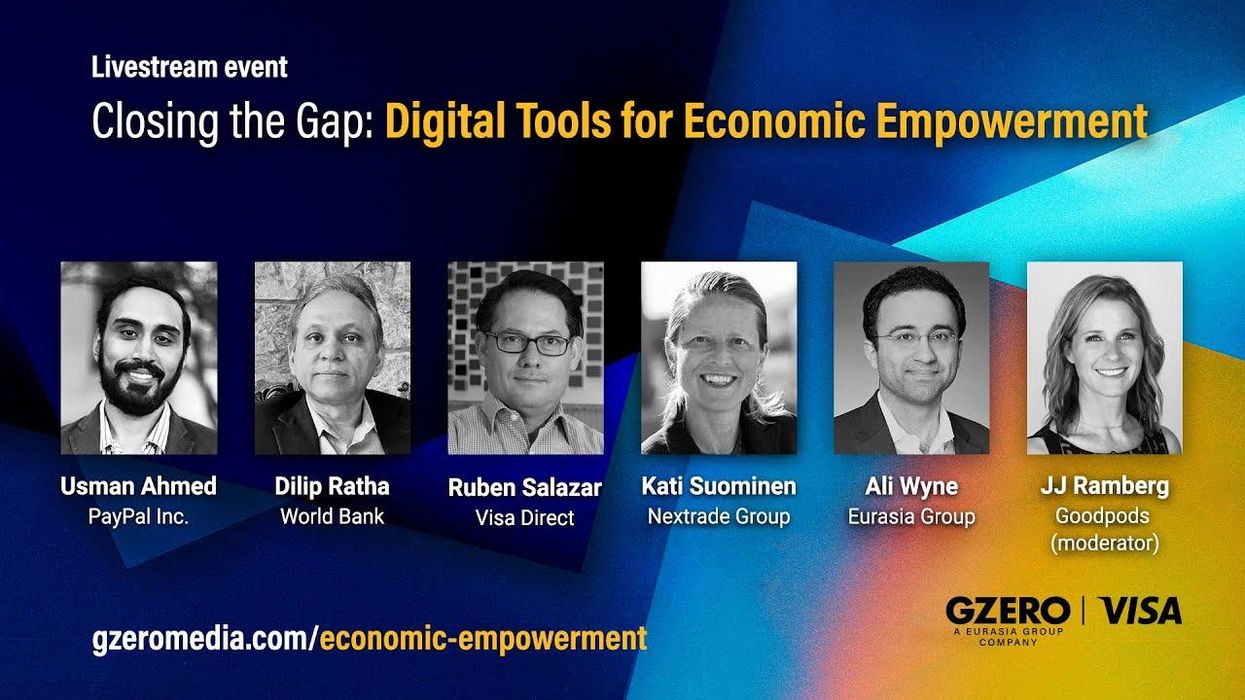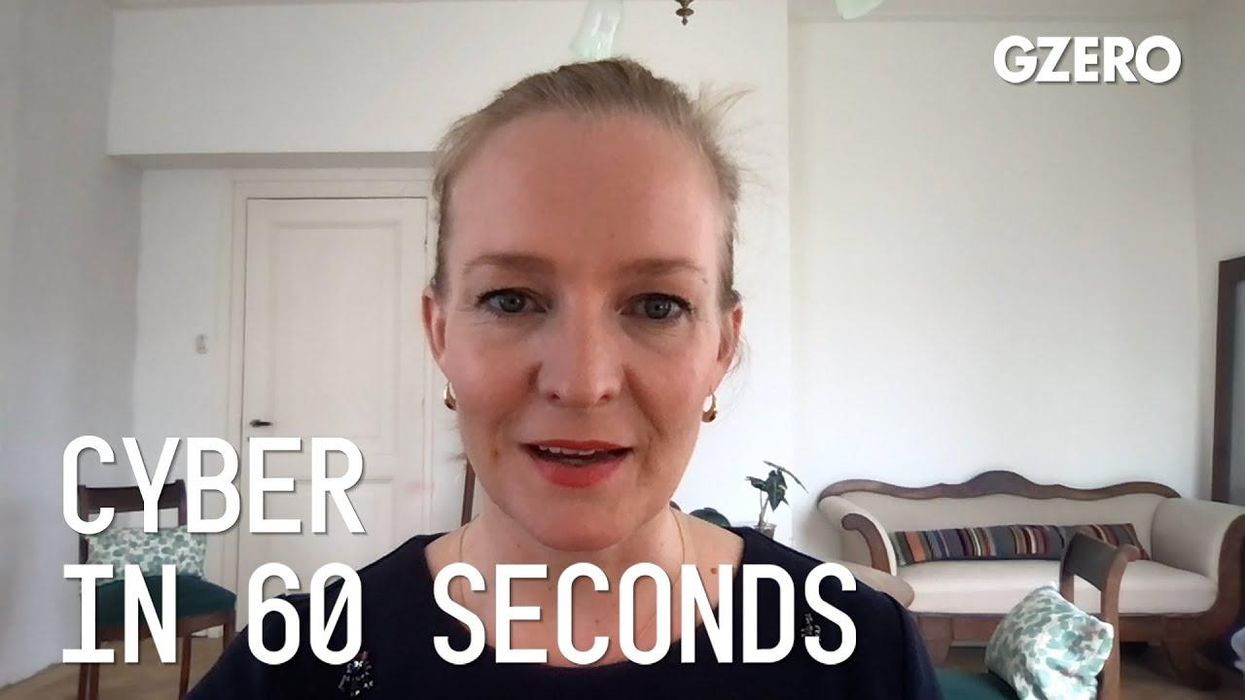Closing the Gap
The weaknesses of a digital economy
Is there any downside to going cashless? Not really, but there are challenges, Usman Ahmed, head of Global Public Affairs and Strategic Research at PayPal, says during a livestream conversation on closing the global digital gap hosted by GZERO in partnership with Visa.
Nov 11, 2022



